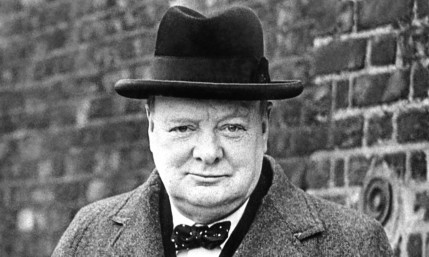Someone asked me last week what had football to do with the Scottish constitutional debate.
He was referring to the release of the so-called GERS figures. These actually stand for Government Expenditure and Revenue for Scotland and not the nickname of a well known Glasgow football club.
But there is a lesson from history that links both types of Gers. A few years after the Second World War, Winston Churchill, then opposition leader, held a major rally at Ibrox Stadium.
In the 1930s George Dangerfield wrote a seminal political book entitled The Strange Death of Liberal England. From the post-war period to now, from Churchill to Cameron, we have been witnessing the strange death of unionist Scotland. This is why, at Ibrox, Churchill was speaking to the unionist audience of Scotland, but it was the manner in which he addressed the crowd that was really interesting.
His tone was highly respectful of Scottish sensitivities. Churchill declared that Scotland should never be subjected to what he described as the “serfdom of socialism” imposed by English votes, that it was “offensive” to Scottish independence and national pride and that an incoming Conservative government would arrange for further devolution of powers from Whitehall to the Scottish Secretary to enable more decisions to be taken in Scotland.
At that time the Tories were capable of taking up to half of the vote in Scotland. It would never have even occurred to Churchill to rejoice in the country’s challenges or to suggest for a single moment that Scotland was somehow incapable of standing on its own two feet.
Contrast that with today’s apology for Scottish unionism. They respond with Pavlovian glee to anything that causes Scotland’s difficulties. They treat the current low oil price as if it is a good thing because it can be used as a weapon against Scottish independence with scant regard to the job losses that result. They think nothing of telling people that an independent Scotland would be an economic basket case. And then they wonder why it can be that it is the SNP that attracts more support than all the unionist parties combined.
Their reaction to the GERS provides a case in point. They pretend that this analysis suggests a £15 billion subsidy from London to Scotland. It doesn’t. They suggest that it tells you about the finances of an independent Scotland. It doesn’t do that, either.
The first claim conveniently ignores the annual £90 billion of UK borrowing or that for no less than 43 of the last 50 years the UK as a whole has run a budget deficit. The extent to which in any year there is a transfer north to south or south to north depends on whether oil prices are high or low. Over the last 10 years they have just about evened each other out. In terms of the current budget balance, in the 10 years from 2004/5 the GERS figures show a Scottish deficit of 3.4% of the total economy compared to a slightly worse UK figure of 3.5%.
More interesting is why the GERS figures tell you little about the finances of an independent Scotland. On one level that is because spending decisions would be different. To take some topical examples, Scotland would not be spending £170 billion building a new generation of weapons of mass destruction or a similar mind-boggling sum on new nuclear power stations at Hinkley Point. Within the UK, our share of these gigantic white elephants count towards GERS spending.
However, it is on another level where things are even more interesting and gets to the truth of what is going on.
The GERS figures are a static analysis. They show what has happened to Scottish finances within the union. They don’t tell you what would have happened if Scotland had been sitting right now on a historic massive oil fund, like Norway, or what could happen if Scotland were to deploy different economic policies in the future.
For example, if an independent Scotland could raise the rate of economic growth it would quickly overcome any initial deficit that Scotland inherited. The opposite is also true. Therefore the key judgment that should be made is whether control from Scotland or London is likely to produce policies tailored to Scotland’s economic circumstances.
The common sense of the remarks of former Bank of England Governor Mervyn King in his new book, The End of Alchemy, was little commented on by the Scottish press last week. In the book Mr King turns his perceptive eye to the Scottish referendum. Accusing the No campaign of being “misleading” in their suggestion that the use of sterling would have presented any serious difficulty, he goes on to say: “To admit that there was a simple and straightforward answer to the currency question would have undermined its argument that independence would be an economic disaster. That proposition was always implausible. There are many small successful countries in the world and there is no reason why Scotland could not have joined them.”
If a former governor of the Bank of England, like Churchill all these years ago, is prepared to state that clear and obvious point, why do Scottish Tory and Labour politicians believe they can find success in constantly running their country down?
